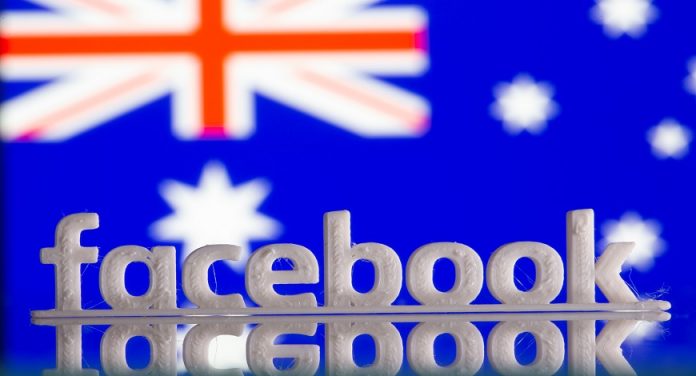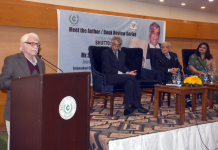SYDNEY: Australians woke to empty Facebook news feeds on Thursday, after the social media giant blocked all media content in a surprise escalation of a dispute with the government, which could be a test for the future of online publishing worldwide, media content for users there.
The move was swiftly criticised by news producers, politicians and human rights advocates, particularly as it became clear that official health pages, emergency safety warnings and welfare networks had all been scrubbed from the site along with news.
“Facebook’s actions to unfriend Australia today, cutting off essential information services on health and emergency services, were as arrogant as they were disappointing,” Prime Minister Scott Morrison wrote on his own Facebook page, using the vernacular for cutting ties with another person on the site.
“These actions will only confirm the concerns that an increasing number of countries are expressing about the behaviour of Big Tech companies who think they are bigger than governments and that the rules should not apply to them.”
A planned Australian law would require Facebook and Google to reach commercial deals with news outlets whose links drive traffic to their platforms, or be subjected to forced arbitration to agree a price.
Although Australia is a small market, the law is being closely watched around the world by regulators, and could be a test case for bigger global push to force internet giants to share some of their revenue with content providers.
Publishers say platforms such as Google and Facebook have been hoarding the vast bulk of new revenue as media shift online, even as newspapers, magazines, TV and radio stations and websites are forced to shut newsrooms around the world.
Facebook said it had blocked media content in Australia because the draft law did not provide clear guidance on the definition of news content and said its commitment to combat misinformation had not changed.
“The actions we’re taking are focused on restricting publishers and people in Australia from sharing or viewing Australian and international news content,” a company spokesman said.
“As the law does not provide clear guidance on the definition of news content, we have taken a broad definition in order to respect the law as drafted. However, we will reverse any Pages that are inadvertently impacted,” the spokesman said.
Facebook’s dramatic move represents a split from Alphabet Inc-owned Google, after they joined together for years to campaign against the laws. Both had threatened to cancel services in Australia, but Google has instead sealed preemptive deals with several outlets in recent days.
Rupert Murdoch’s News Corp was the latest to announce a deal in which it will receive “significant payments” from Google in return for providing content for the search engine’s News Showcase account.
Google declined to comment on the Facebook decision on Thursday.
Facebook said in its statement that the law, which is expected to be passed by parliament within days, “fundamentally misunderstands” the relationship between itself and publishers and it faced a stark choice of complying or banning news.
The tech giant has said news makes up just 4% of what people view on its website. But for Australians, Facebook’s role in news delivery is growing. A 2020 University of Canberra study found 21% of Australians use social media as their primary news source, up 3% from the previous year, while 39% of the population uses Facebook to receive news. The same study said 29% of Australian news video content is consumed on Facebook.
The changes made by Facebook wiped clean pages operated by news outlets and removed posts by individual users sharing Australian news, three days before the country begins a nationwide vaccination program to slow the spread of COVID-19.
Lisa Davies, editor of daily The Sydney Morning Herald newspaper, owned by Nine Entertainment Co Ltd, tweeted: “Facebook has exponentially increased the opportunity for misinformation, dangerous radicalism and conspiracy theories to abound on its platform.”
The Facebook pages of Nine and News Corp, which together dominate the country’s metro newspaper market, and the government-funded Australian Broadcasting Corp, which acts as a central information source during natural disasters, were blank.
Also affected were several major state government accounts, including those providing advice on the coronavirus pandemic and bushfire threats at the height of the summer season, and scores of charity and non-governmental organisation accounts.
“Demand for food relief has never been higher than during this pandemic, and one of our primary comms tools to help connect people with #foodrelief info & advice is now unavailable,” tweeted Brianna Casey, chief executive of hunger relief charity Foodbank.
A News Corp spokesman did not respond to a request for comment. An advertisement on News Corp’s main Australian news site said, “You don’t need Facebook to get your news”, alongside a link to the company’s smartphone app.
By mid-afternoon, many government-backed Facebook pages were restored but several charity pages and all media sites remained dark, including those of international outlets like the New York Times, the BBC, News Corp’s Wall Street Journal and Reuters.
Facebook’s own page was down for several hours in Australia before being restored.
“This is an alarming and dangerous turn of events,” said Human Rights Watch in a statement. “Cutting off access to vital information to an entire country in the dead of the night is unconscionable.”

















